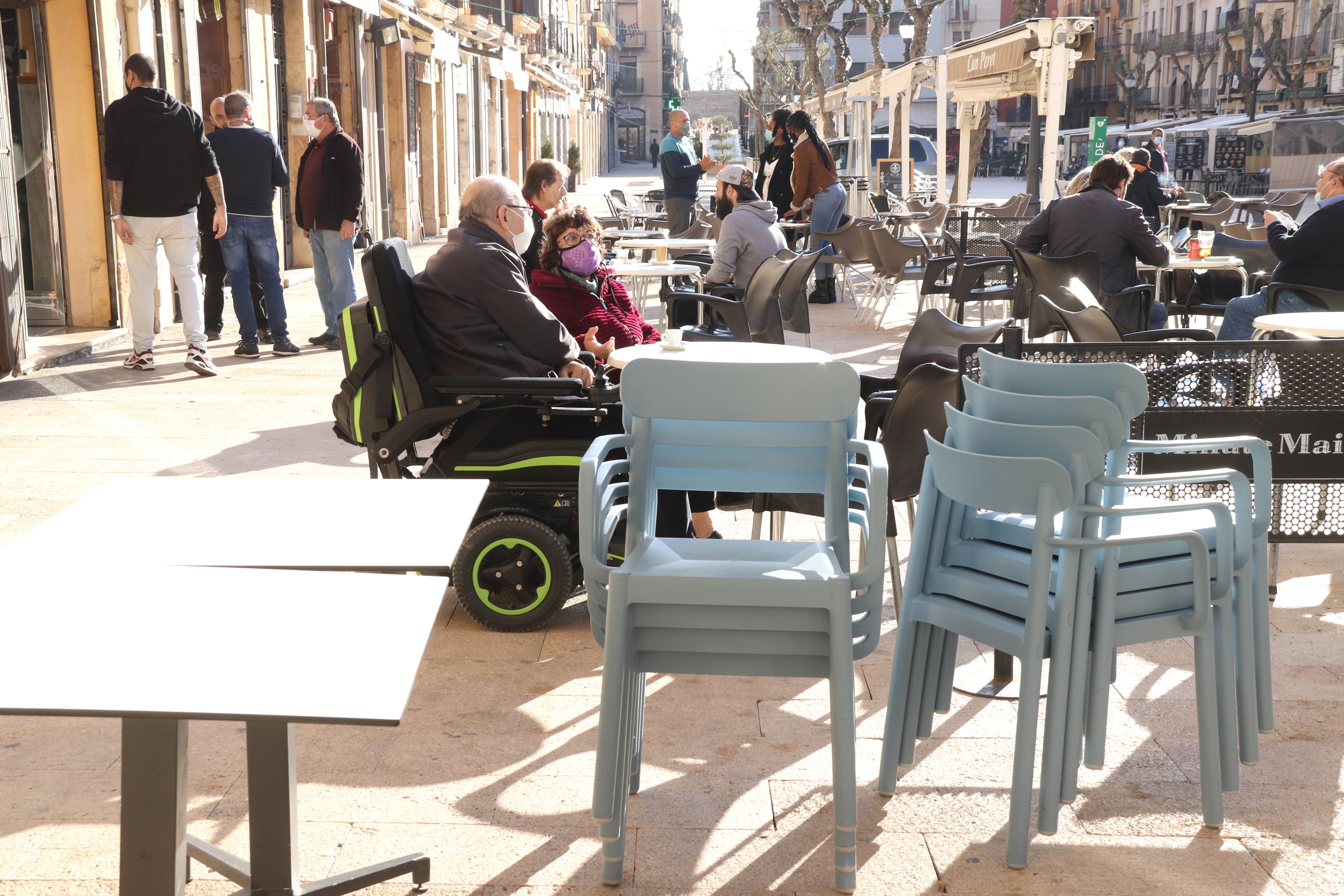The rickety sound of rising roller doors has once again woken up Catalonia this Monday morning. After more than a month closed, bars and restaurants have been able to re-admit customers, albeit with conditions and limitations imposed by the Catalan government that, for many, make it unviable to reopen their businesses. According to the gremi - or business association - of Barcelona restaurateurs, 70% of their members have reopened to the public this Monday. The association is now calling for the nighttime curfew - current set at 10pm - to be delayed until later.
In this first phase of the Covid-19 de-escalation plan designed by the Catalan government, hospitality establishments can only occupy their outdoor terrace space along with 30% of the normal interior capacity. Also, at 9:30pm they have to close for the night. Thus, small restaurants that normally do most of their business in dinners, as well as those which don't have terraces, have had second thoughts about opening. "There are many who do not see reopening as viable under the conditions of this first phase of the de-escalation," says the director of the Gremi, Roger Pallarols, noting that in these cases, "their workers are still on furlough schemes, while business debts continue to grow."
Eyes on the December Puríssima and Christmas
The sector has its sights set on two key dates: the early December break for the Puríssima (Immaculate Conception holiday) on Tuesday December 8th, and two weeks later, of course, Christmas. The Gremi is imploring the Catalan government to rethink the planned measures "in time". In particular, they are pushing for a review of the rule which for them is the most restrictive of all: curfew, which is now set at 10pm. Proprietors ask for it to be put back until midnight.
Bars and restaurants have been closed to the public for 40 days. Pulling up the roller blinds again was a desperate need, and now avoiding a reimposition of the measures is a must. Therefore, the Gremi is calling for all proprietors to take responsibility to "diligently apply the various sanitary measures: distance of 2 metres between diners at different tables, capacity limits, hand washing and masks, etc."
Customer co-responsibility
At the same time, the association stresses that it is vital for customers to take co-responsibility for the situation. Especially in the case of co-habitation bubbles.
The Catalan government's rules stipulate that each terrace table can seat a maximum of four diners, but there is one exception. More are allowed as long as they are from the same co-habitation bubble - that is, they live in the same household. To comply with this, however, restaurateurs depend on the honesty of their customers.
"The residents have missed us and we've missed them too: today the joy of reunion is mutual. The restaurant is still a safe space, ideal for leisure and socialization", concludes Pallarols.

